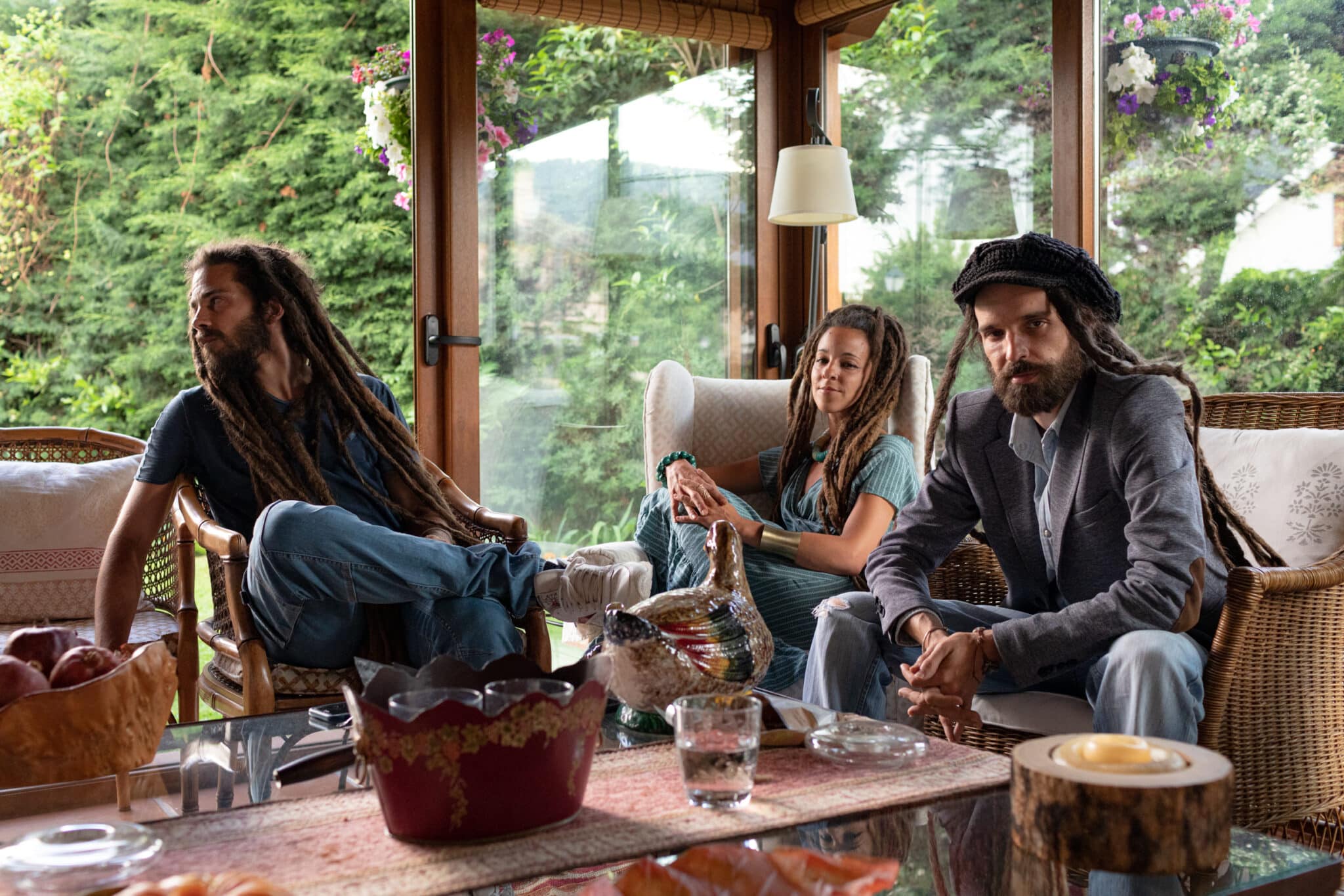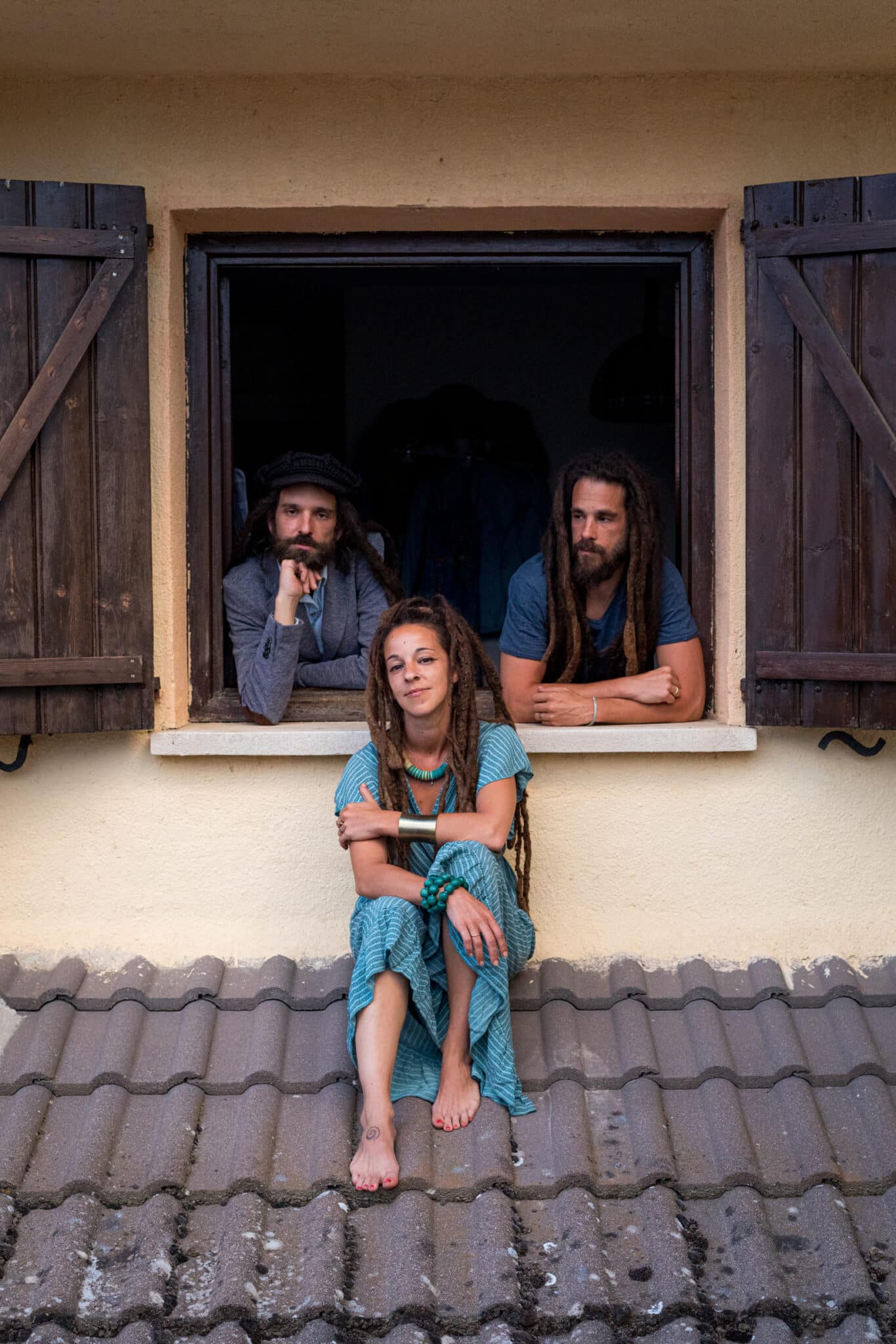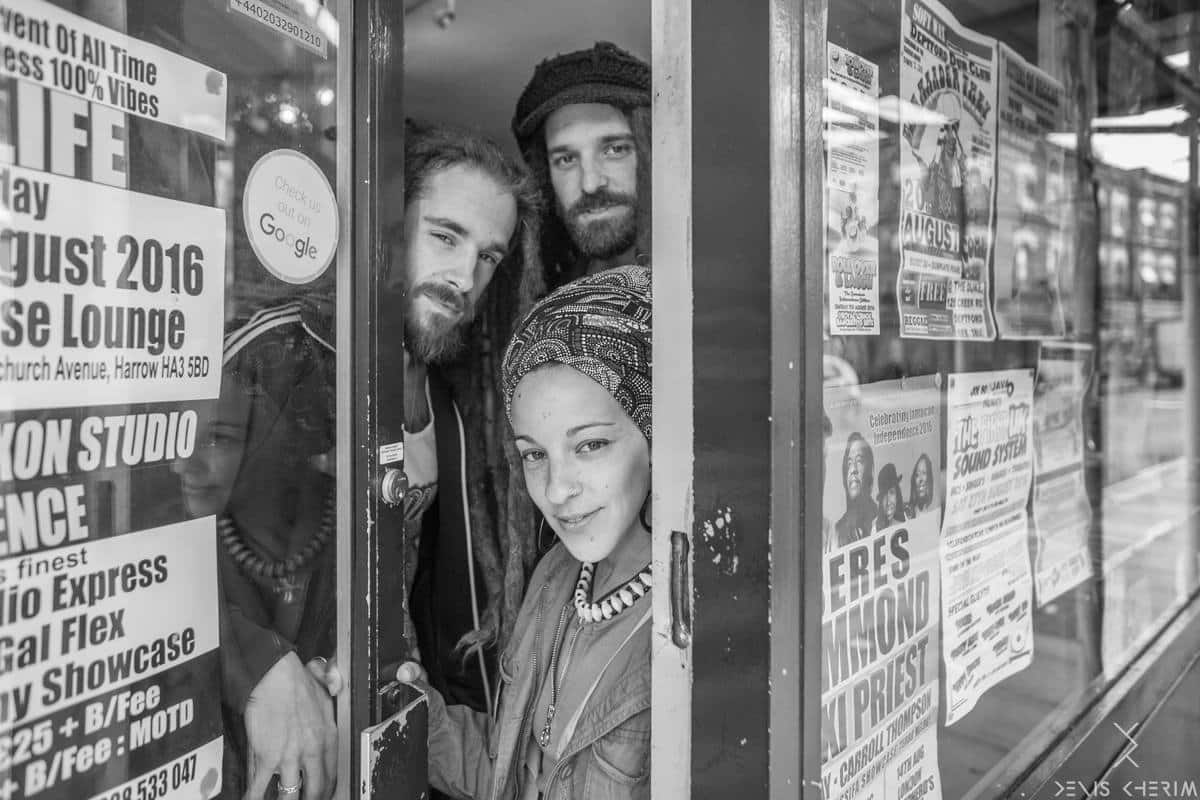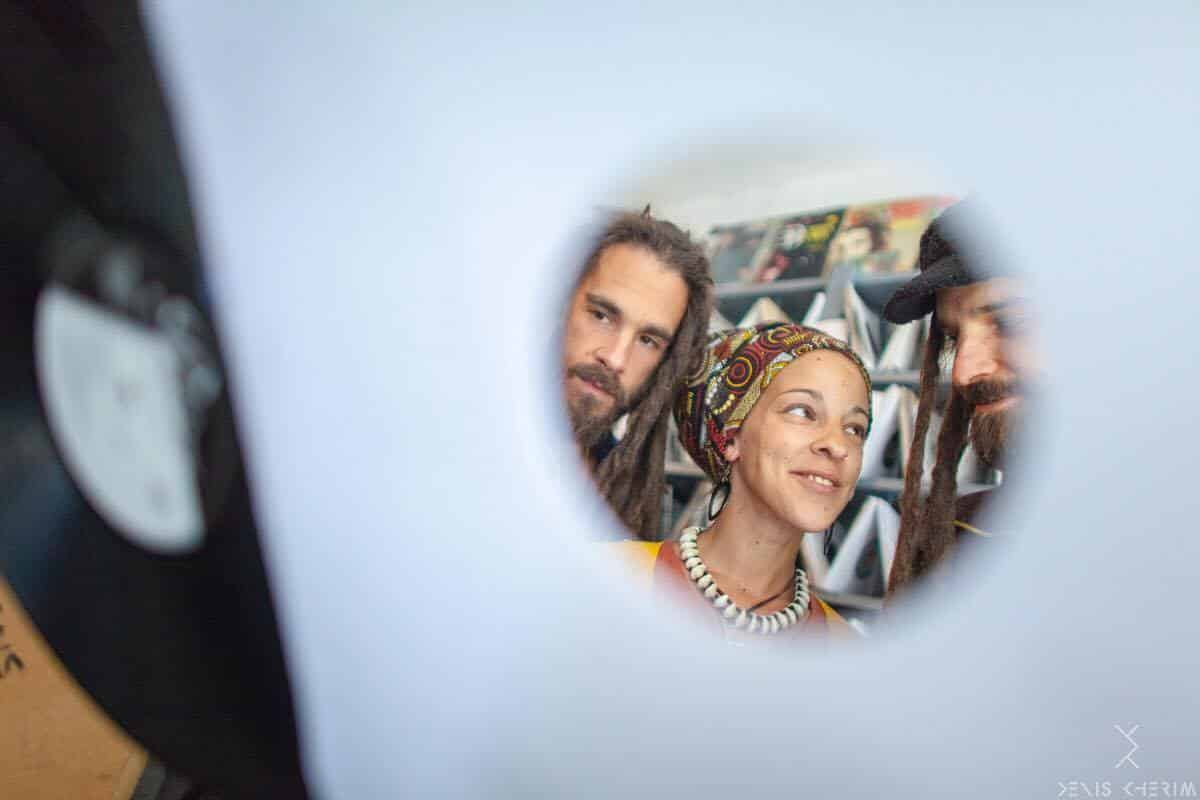Music, reggae in particular, is an extremely powerful medium that transcends lingual, geographic and cultural borders, brings people together and can foster change and elevate consciousness. With this in mind, as a platform for reggae music worldwide, Rootfire has always strove to not only promote American artists but to also shine a light on work that we endorse from beyond our shores. In addition to the obvious reggae hotbeds such as Jamaica and England, over the years, we have covered the music of Lone Ark and The 18th Parallel from Spain and Switzerland respectively, the French collective known as Pinnacle Sound, Pyrotechnist out of Belgium, Canadian groups Reggaddiction and Bedouin Soundclash, Black Bird Hum and The Black Seeds from Down Under, Scottish singer Soom T, and from Italy, Mellow Mood and Alborosie, (although at this point it seems disingenuous to categorize Albo as an Italian artist given his bonafide international stardom and current base in Jamaica.)
Today, we turn our focus back to the country of Spain and the uber-talented vocal trio known as Emeterians, who first came to my attention several years ago thanks to Instagram. Their heavenly harmonies instantly captivated me and prompted me to dive into their discography on Spotify, which sealed the deal of my deep appreciation of this wonderful group. I highly encourage diving into the rabbit hole of their Instagram account to enjoy chill-inducing, heartwarming acoustic tributes to essential roots reggae classics.
Out of the city of Madrid, Emeterians consist of a brother/sister duo, Maga Lion and Sister Maryjane, along with their lifelong friend, Brother Wildman, who grew up in the same neighborhood. The three friends would gather in the nearby park to sing Bob Marley and Peter Tosh songs. With a dream to build their own band and write/record their own songs, over the course of two years of recruiting members, they finally started Emeterians in 2004, naming the band after Emeterio’s Rehearsal Rooms.
In their youth, Maga Lion and Sister Maryjane grew up in a musical household and were motivated to learn music very early in life. According to Maryjane, she started with violin lessons at the age of three, followed by piano and guitar and chorus. She recalled that her parents “always listened to good music – soul, jazz, pop, classic, musicals,” but Maga Lion “had a big influence on my musical journey as the good big brother he is,” introducing her to reggae music and also starting their first reggae band together, Slowgrow.
Maga Lion added that he hadn’t heard his first reggae song until the age of 17 and ironically, it was because he had borrowed a Bob Marley tape by mistake. He explained that, at first, he used to play the music before going to sleep to “relax him in a way that other genres couldn’t,” but he quickly “felt the need” to listen to reggae during the day as well. “Reggae music had hit me, and I felt no pain!” he exclaimed.
Like his bandmates, Brother Wildman had been exposed to a wide variety of music as a youth, but unlike them, he never received any formal musical training. As for his introduction to reggae music, he said, “I discovered reggae music on my own searching for something that would speak to me, and reggae music most definitely did.”
Wildman expanded on how reggae music reflects the band’s true beliefs and aligns with their collective spirit. “We share the love for nature and love to spend most of our time surrounded by green, or at a quiet beach by the river. We also feel that there is too much corruption going on everywhere, and we believed this long before becoming reggae artists. So, when we first understood what reggae music and Rastafari was about, we just ‘answered the call.’. You could say reggae music and the spirituality it carries, with its rebellious message, checked all the boxes for us.”
Over the years, Emeterians have performed not only as an acoustic trio, but also with a 4 or 5-piece band, with live dubbing and as guests with a variety of sound systems. According to Wildman, “We have mostly been doing our thing on top of different crews’ selections. However, recently, three of our closest friends and reggae warriors from long time, General Soria, Luis Fyah and Crazy Selector, have founded and built Roots Rockers Sound System, which finally affiliates us to a sound system.”
About the live dubbing, Maga Lion explained, “Like Pablo Moses used to say, ‘Dubbing is a must.’ Since our beginnings in 2004, we believe that the sound engineer is another band member, mixing live and adding that extra flavor. Now, in 2023, it´s been six years since I started dubbing on our productions and mixing the tracks live like it used to be done. We do a lot of shows with a pure dub format with no band in which we sing and dub live on the riddims I have recorded over the years.”
Beyond these incarnations, this group of reggae fanatics has also performed as Versionites, in which they do all covers. Wildman explained that it’s been a long time since their last show as this alternate act, but they had created it for three main reasons: “The first one, to learn from the best. We studied the melodies, the lyrics, the harmonies in our favorite songs from our most beloved artists, and that gave us some knowledge and better understanding of how roots reggae is meant to be played. The second one, we felt the need to pay tribute to the great legends, while we tried to show the younger generations who were the ones that set the foundation. The third one, we couldn`t keep playing every week in our city; we were concerned that we could bore our audience, so we came up with Versionites also as a way to remain on top of the stages.”
As if all of this wasn’t enough, Emeterians have also performed what they call “didactic live shows for children.” Maryjane explained that since they were already giving tribute to the reggae greats with Versionites, they thought “it was time to offer the same to the next generation.” She said, “We are aware how reggae music doesn´t have a range of age, and how children connect to this music is amazing. So, we came out with the idea of making a show that would go around the world explaining where reggae music comes from, giving the opportunity to interact with the children, making it both fun and didactic.”
The group actually took their role as educators a step further and released Ealy Ears Music For Our Children, a charming children’s album that is much more palatable for adults than this insidious song with over 35 million streams. This had been recorded during a four-year stint living in London, when the band had worked in a nursery.
What prompted the move to London?
“We reached a point around 2012 where we had pretty much played everywhere in Spain and some places in Europe, but we felt that was going to be it — there didn´t seem to be any more to do in Spain,” said Brother Wildman. “Plus, we felt like everything we knew about reggae and Jamaican culture came from documentaries, books, live performance dvds, and reggae albums, and we all felt it was time to go to the source. The original plan was Jamaica, but we lacked the contacts or the funds, so we decided to go to London instead.”
Continuing, he added, “London offered us that wonderful cultural mixture that allows you to share with many people from different cultures and walks of life. That helps you to grow as a person and to understand mankind a little better. And of course, in terms of reggae and Jamaican culture, we finally were able to share with Jamaicans, sing along with Jamaicans, record with Jamaican producers such as Peckings or Stingray, reason with Jamaican Rastafarians, and get much more in touch with this culture we fell so very much in love with so long ago.”
During their time living in London, the band recorded three of their seven LPs, including The Journey with co-production from Chris Peckings and Cosme Deyah, The Magic Touch co-produced by Carl “Dillie” McLeod of Stingray, and Roots O´Clock also co-produced by Stingray.
Prior to that, Emeterians released three albums – Seeds, Change the Mood and Power of Unity – and after returning to Spain from London, most recently in 2021 they released Lockdown Project. The first two albums are only available on their website and You Tube, but the other five can be found on major streaming platforms.
While their music does sound modern compared to the recordings of the 70s and 80s, make no mistake — taking inspiration from the music that most inspired them, Emeterians are a bonafide roots reggae band. As for their approach to songwriting, the band doesn’t really have a specific creative process or formula beyond the fact that Maga Lion creates the instrumentals. According to Brother Wildman, “Sometimes Maga Lion sends me a new riddim and I start having ideas — a melody for example, or sometimes a melody with lyrics that feels right — and I go from there. But sometimes an idea pops up in my head and I start to develop it mentally. If I really like where I´m going, I run home, send a vocal message to Maga Lion and he starts building the riddim.” Wildman added that the evolution of the initial idea is the process he enjoys the most.
Adding some Jamaican authenticity to the beautiful sound of the Emeterians’ harmonies, their recent records include some notable collaborators such as Clinton Fearon, Ky-Mani Marley, Luciano and Kumar (formerly of Raging Fyah.) Sister Maryjane said that, while they prefer to work with everyone in person, sometimes they have to do it remotely — but even then, they first get to know the artists and make connections on a personal level.
“We are blessed to say most collabs were made naturally and in-person,” she said. “The thing we like most about collabs is to meet the artist, make him feel at home, chat about our lives and spend time reasoning so that we can properly connect.”
She used Clinton Fearon as an example, who sang with them on the song “Fly with Me” on the Roots O’Clock album. “We absolutely love his music and went to many of his concerts. We had a little chat with him at a festival and had the chance to introduce ourselves and our music. When he performed in Spain, we managed to open for him. Then we reached his wife-manager Catherine through mail and invited them to our house in the countryside of Madrid. They spent three days here and we had the chance to get to know each other, walk around the mountains and lakes, offer our wonderful and local veggies and fruits, until he just said ‘Play the riddim.’ Then, everything flowed. He came up with a chorus and we wrote together the verses, and the harmonies came along naturally.”
With almost twenty years of recording and performing under their belt, the group’s success and longevity has helped popularize reggae not just within their home country but, to some extent, across Europe as well. Said Maga Lion, “I believe we have planted our little musical seeds over the years and many of them have flourished.”
He said that one of the ways in which they have helped boost the interest in reggae music has been through their performances at festivals – not only reggae, but beyond, getting fans from other genres to embrace Jamaican music culture.
Of course, Spain hosts the most popular European reggae festival, Rototom Sunsplash, which originated in Italy in 2004, but since 2010 has been held in the Spanish town of Benicassim on the eastern coast of Spain. “Rototom Sunsplash is definitely an incredible experience, both as an artist and as an attendant,” said Maryjane. “The place is huge and full of amenities for young and old, and there´s an act for everyone, loads of different stages dedicated to the different reggae styles.”
Other European festivals that the band enjoys include Skank International Reggae Festival in the mountains of Cantabria, northern Spain, “surrounded by rivers and green,” and Overjam Festival in Slovenia. Skank is a newer event that is very suited for families with amazing lineups of roots reggae artists and “authentic sound system vibes,” while Overjam adds to their “unbelievable” acts with areas devoted to dancehall and dub beyond the main stage. “The festival is placed in a valley of green pastures and a quite big river runs across,” she said.
Also, not to be overlooked, Emeterians actually created their own festival to honor women in reggae, called Sisters Sing the Reggae Queens. “This was an idea to raise female reggae voices into a mainly men´s scene,” explained Maryjane. “By unifying female voices making a tribute to the reggae queens, we could really see at once all the big tunes we were missing out at reggae parties.” They had started the festival in 2009 with “sisters from Madrid,” but it had such a warm welcome that they expanded to invite singers from across Spain the next year. Beyond Maryjane herself, the cast of performers included Kati Dadá, Alana Sinkey, Astrid Jones, Sista Layn, Yolanda Eyama and Aurora Garcia. Maryjane said that all profits were donated to a children and women´s charitable foundation, but after three straight years, the festival was ceased due to the band’s move to London.
Clearly, Emeterians embrace roots reggae like oxygen. With it, they feed their own souls while nourishing fans, striving to create a better world through the power of music.
Looking ahead, Maga Lion mentioned that the band is currently working on two different studio albums – one in English and one in Spanish – which promise to feature some exciting guest appearances and will be preceded by some singles. Early next year, they plan to travel to Jamaica to record some material and they are “working hard” to enable themselves to do some touring in South and North America later in 2024.
Surely, I’ll be looking forward to catching a performance of this incredible trio as they further the legacy of groups like The Abyssinians, The Gladiators, The Wailing Souls and Israel Vibration, to name of a few of the Jamaican greats that inspired them.

